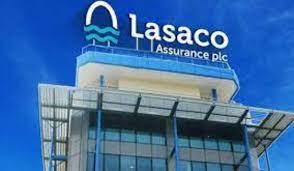
Despite mounting opposition against the 50 per cent upward review of telephone service charges, telecommunications companies say the approval is insufficient to cover the rising cost of operation.
The operators, under the aegis of the Association of Telecommunications Companies of Nigeria (ATCON), stressed that the 50 per cent hike does not fully address their demand.
They, however, said the approval reflects the Nigerian Communication Commission’s (NCC) acknowledgement of the significant operational challenges facing the industry and its commitment to sustaining quality service delivery.
ATCON, in a statement signed by the President, Tony Izuagbe Emoekpere, commended the NCC’s consultative and collaborative approach to addressing the issues.
ATCON noted that its members are eagerly awaiting the official determination document from the NCC, which is expected to provide detailed guidelines on implementing the new tariffs in line with the Nigerian Communications Act 2003.
According to the body, the document will be instrumental in guiding operators and stakeholders in implementing the adjustments and the accompanying expectations.
“While the approved tariff adjustment, capped at a maximum of 50 per cent, does not fully address the operators’ request for a 100 per cent increase, we understand that this is a step towards bridging the gap between operational costs and revenues.
“This adjustment will enable operators to continue investing in infrastructure, expand coverage, and improve service quality for the benefit of all Nigerians,” it stated.
ATCON reassured that the tariff adjustments would ultimately benefit consumers as its members are committed to reinvesting the additional revenue into enhancing network quality, expanding digital access and delivering improved customer experience.
The association stressed that these investments would translate into improved connectivity, wider coverage and innovative solutions designed to meet the evolving needs of Nigerians.
It noted that for over a decade, telecom tariffs in Nigeria have remained static despite escalating costs driven by inflation, exchange rate volatility, and the substantial investments required to meet growing consumer demand.
ATCON highlighted that these challenges have put immense financial strain on operators, threatening the sustainability of the sector, which serves as a cornerstone of Nigeria’s digital economy.
“The telecommunications sector remains dedicated to contributing to national development and economic growth by fostering an environment of sustained investment,” the statement added.
While expressing gratitude to the NCC for balancing the interests of operators and consumers, ATCON urged the commission to maintain open engagement with telecom operators to address ongoing challenges that hinder operational efficiency.
Amid telcos’ rationalisation, a Nigerian lawyer, activist and social entrepreneur, Frank Tietie, has faulted the Minister of Innovation, Communications and Digital Economy, Dr Bosun Tijani, the NCC and the Federal Competition and Consumer Protection Commission Lagos (FCCPC) for allowing the 50 per cent hike to scale through the approval process.
Tietie, on a television programme, yesterday, said the cost of the Federal Government’s incompetence is always passed to the people, which should not be.
Referencing the NCA Act, Sections 57 and 58, which require the NCC to conduct a public inquiry and sensitisation before allowing any price hike, the lawyer said the minister should not justify the operators based on inflation, naira devaluation, rising energy cost among others.
Tietie said operators have long been told to invest in renewable energy, among other solutions to bridge the rising energy cost.
“I don’t know why the Minister is defending the telcos. These operators make lots of money from sending unsolicited adverts, among others to subscribers. Must we always blame inflation for everything? The NCC failed abysmally on consumer protection, there should have been a public inquiry as enshrined in Sections 57 and 58 of the NCA Act 2003, but nothing was done,” he stated.
Taking a swipe at the FCCPC for not acting accordingly to protect subscribers, Tietie said Nigerian consumers are now helpless, stressing that the challenge faced by operators should not always be about price increases.
In a swift response, FCCPC stated that consumer interests remained paramount, stressing that tariff increases must result in significant service improvements.
While commending the NCC, the FCCPC in a statement, yesterday, signed by its Director of Corporate Services, Ondaje Ijagwu, acknowledged the intense pressure faced by the commission over the years to approve tariff increases due to the rising operational costs experienced by telecoms operators, which became more pronounced in recent times.
According to FCCPC, the NCC’s approval of a 50 per cent adjustment, which is lower than the over 100 per cent increase initially proposed by operators, demonstrated a thoughtful effort to balance industry sustainability with consumer protection.
FCCPC said it is non-negotiable that telecom operators must prioritise visible and measurable improvements in network reliability, speed, accessibility, and customer service as part of any tariff adjustment.
According to it, the rationale for the increase must be reflected in better services for consumers who rely on telecommunications for both personal and business purposes.
“Operators are expected to allocate increased revenues responsibly, with an emphasis on infrastructure development and service delivery improvements. Clear mechanisms must be established to monitor how these funds are utilised, ensuring that consumers directly benefit from the adjustments.
“Operators must also clearly communicate the rationale for the tariff adjustments to consumers. This includes ensuring that consumers are fully informed about the nature of the changes, their benefits, and how they align with efforts to improve service delivery and infrastructure,” FCCPC stated.








